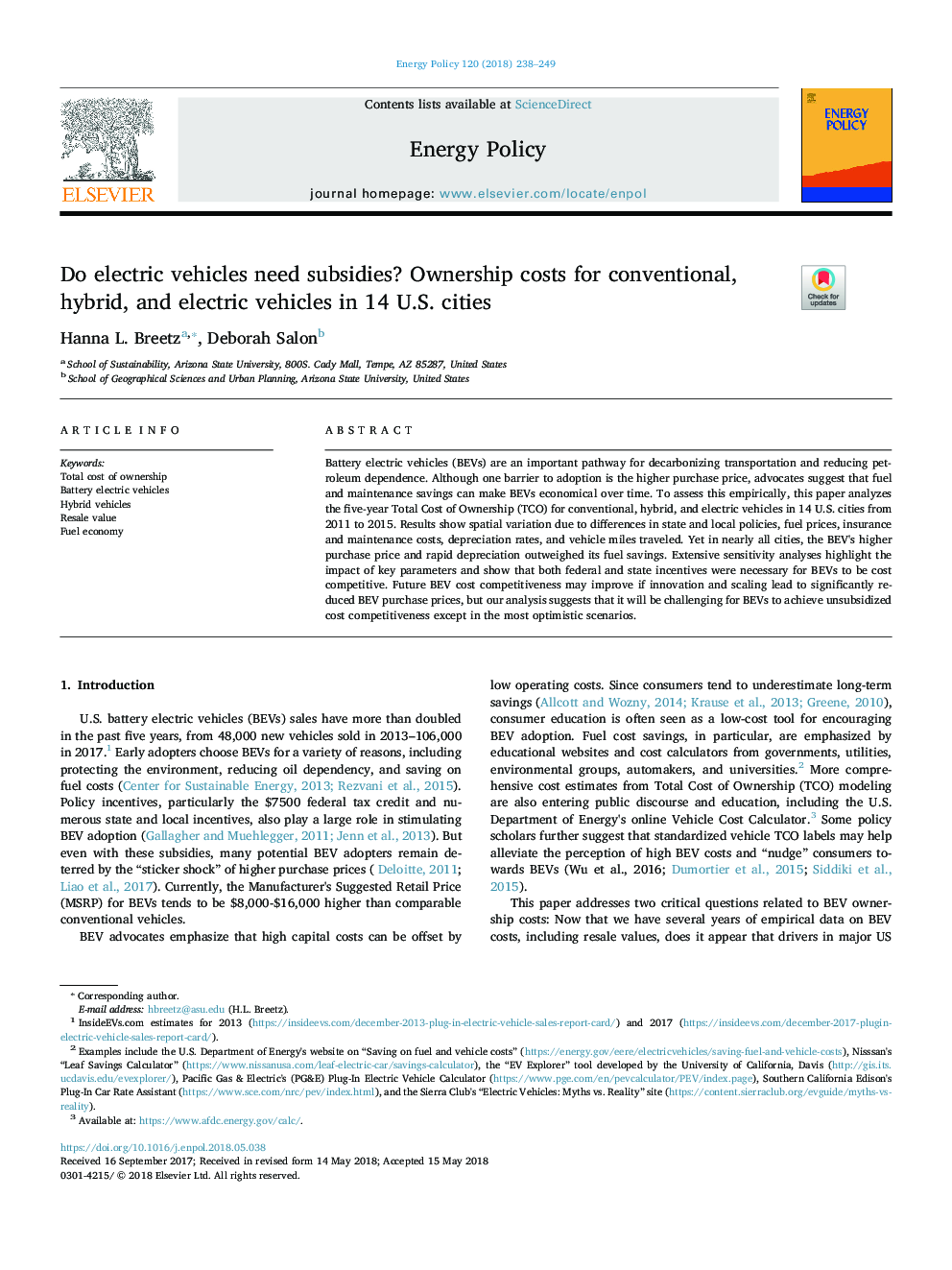| Article ID | Journal | Published Year | Pages | File Type |
|---|---|---|---|---|
| 7396676 | Energy Policy | 2018 | 12 Pages |
Abstract
Battery electric vehicles (BEVs) are an important pathway for decarbonizing transportation and reducing petroleum dependence. Although one barrier to adoption is the higher purchase price, advocates suggest that fuel and maintenance savings can make BEVs economical over time. To assess this empirically, this paper analyzes the five-year Total Cost of Ownership (TCO) for conventional, hybrid, and electric vehicles in 14 U.S. cities from 2011 to 2015. Results show spatial variation due to differences in state and local policies, fuel prices, insurance and maintenance costs, depreciation rates, and vehicle miles traveled. Yet in nearly all cities, the BEV's higher purchase price and rapid depreciation outweighed its fuel savings. Extensive sensitivity analyses highlight the impact of key parameters and show that both federal and state incentives were necessary for BEVs to be cost competitive. Future BEV cost competitiveness may improve if innovation and scaling lead to significantly reduced BEV purchase prices, but our analysis suggests that it will be challenging for BEVs to achieve unsubsidized cost competitiveness except in the most optimistic scenarios.
Related Topics
Physical Sciences and Engineering
Energy
Energy Engineering and Power Technology
Authors
Hanna L. Breetz, Deborah Salon,
